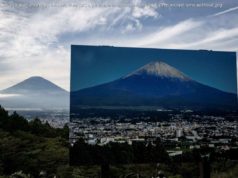Located 150 miles from Tokyo, this wildlife habitat is one of the most popular destinations to get up close with these amazing primates
Japanese Macaque monkeys relax in the hot spring at the Jigokudani Monkey Park Getty
Located near the base of the Joshinestu Kogen National Park, the Snow Monkey Park is home to one of the most amazing animal adventures in the world. It has always been one of my ultimate bucket list journeys witnessing the monkeys up close, and when organized correctly it will be something you will never forget.
Established in 1964, the park was created as a conservation area where the Japanese Macaques monkeys would have a safe refuge within their natural habitat. Their forest home was once threatened by loggers building ski resorts, and they began to migrate towards Jigokudani and towards local farmland where they became legally hunted to protect their crops.
Snow monkey spa time Snowmonkey Park
Through watching humans soaking in the local hot springs, the monkeys soon starting to copy their behavior and became the only monkeys in the world known to enjoy bathing in onsens. A local man by the name of Sogo Hara led the movement to create the monkey park where they would be safe, and baths were created just for the monkeys, using the local hot spring source. Fencing was an option to keep the monkeys away from the neighboring villages but was rejected to not limit their freedom. So, the daily practice of feeding the monkeys raw barley and soybeans began to keep them in the park rather than heading into the villages where they were considered to be pests.
Japanese Macaque monkeys relax in the hot spring at the Jigokudani Monkey Park Getty
A recent report was released by Kyoto University in Japan to scientifically validate the benefits of the monkeys’ behavior. Researchers believed that the monkeys maintain their normal body temperature due to having thicker and longer fur during winter and are the only group of monkeys known to take hot spring baths.






